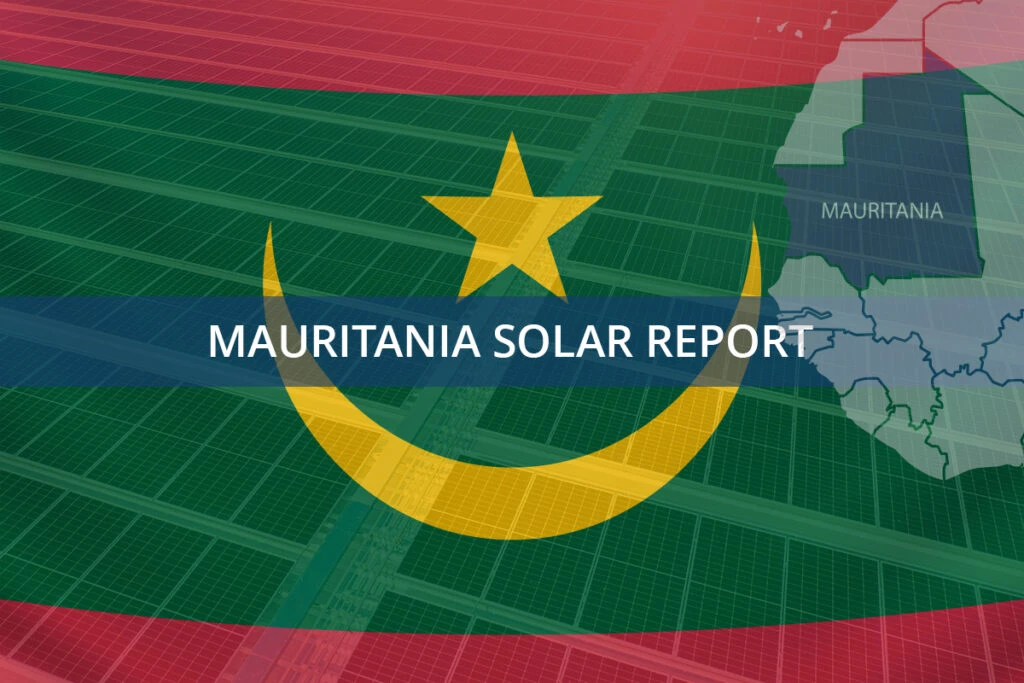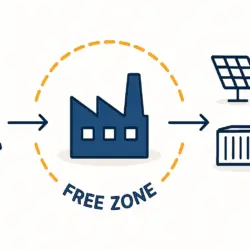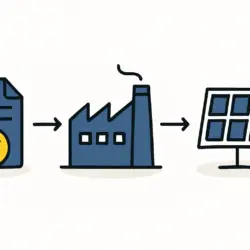Mauritania has unveiled the “Desert Renaissance,” a multi-sector renewable energy initiative developed with German collaborators. The project encompasses solar and wind power, reforestation, and clean water production, all part of a broader goal to achieve carbon neutrality by 2050. This agreement was formalized at the first Mauritanian-German high-level forum on green energy.
Harnessing Solar and Wind Power
Working with a German consortium, Mauritania is advancing renewable energy development through its ambitious Desert Renaissance project. The initiative aims to leverage the country’s vast natural resources through solar and wind projects that will enhance food production and generate potable water.
These efforts are poised to transform Mauritania’s energy sector by providing affordable, low-carbon electricity and positioning the country as a leader in renewables. The project also includes reforesting the Mauritanian desert, using renewable power to desalinate water for irrigation and promoting environmental and economic sustainability in tandem.
German Collaboration and Technological Advancement
The partnership with Germany highlights the international support for Mauritania’s renewable energy ambitions. A memorandum of understanding signed by the Mauritanian Minister of Economy and Sustainable Development will provide essential technical and financial studies for the Desert Renaissance project.
This collaboration is a significant milestone in Mauritania’s pursuit of carbon neutrality by 2050, with the Desert Renaissance project central to this effort. Building on a successful pilot and Mauritania’s participation in the first Mauritania-Germany forum on green hydrogen, the country aims to become a hydrogen production hub, underscoring its commitment to renewable energy.
Unlocking Renewable Energy Potential
Mauritania’s abundant natural resources are crucial for meeting its energy needs. The latest World Energy Outlook from the International Energy Agency (IEA) notes that Mauritania can harness its solar and wind potential to meet rising electricity demand and export the surplus. A strategic emphasis on green hydrogen underscores this potential, since large-scale solar projects are essential to provide the electricity needed for cost-effective production.
This strategy is designed to make Mauritanian hydrogen competitive on a global scale and solidify the country’s status as a leading exporter of renewable energy. Mauritania’s potential extends far beyond local demand; exporting clean energy could significantly bolster its economy, generating new revenue streams and fostering development. This transition to a green economy would also create numerous job opportunities, contributing to social stability and growth.
Towards a Green Future
Mauritania’s ambitious renewable energy projects, supported by German Technology collaboration, are paving the way for a sustainable and carbon-neutral future. Through initiatives like the Desert Renaissance, the country is leveraging its solar and wind resources to drive economic growth while promoting environmental sustainability. Ongoing international support and innovative projects are helping position Mauritania as a significant player in the global renewable energy landscape.
With a strong focus on renewable energy, Mauritania is on track to become a leader in clean energy exports and a model for other nations pursuing a green transition. The Desert Renaissance project exemplifies this plan, integrating advanced technologies and sustainable practices to maximize its efficiency and impact. By weaving sustainable practices across various sectors, Mauritania is setting an example for other nations. The project’s focus on reforestation, clean water production, and sustainable agriculture reflects a holistic approach to development that balances environmental stewardship with economic growth.



